Interview: Playwright Anna Ouyang Moench Deconstructs Her MAN OF GOD After A Two-Year Delay
I got the chance to revisit with Anna Ouyang Moench on her rescheduled opening May 20, 2022
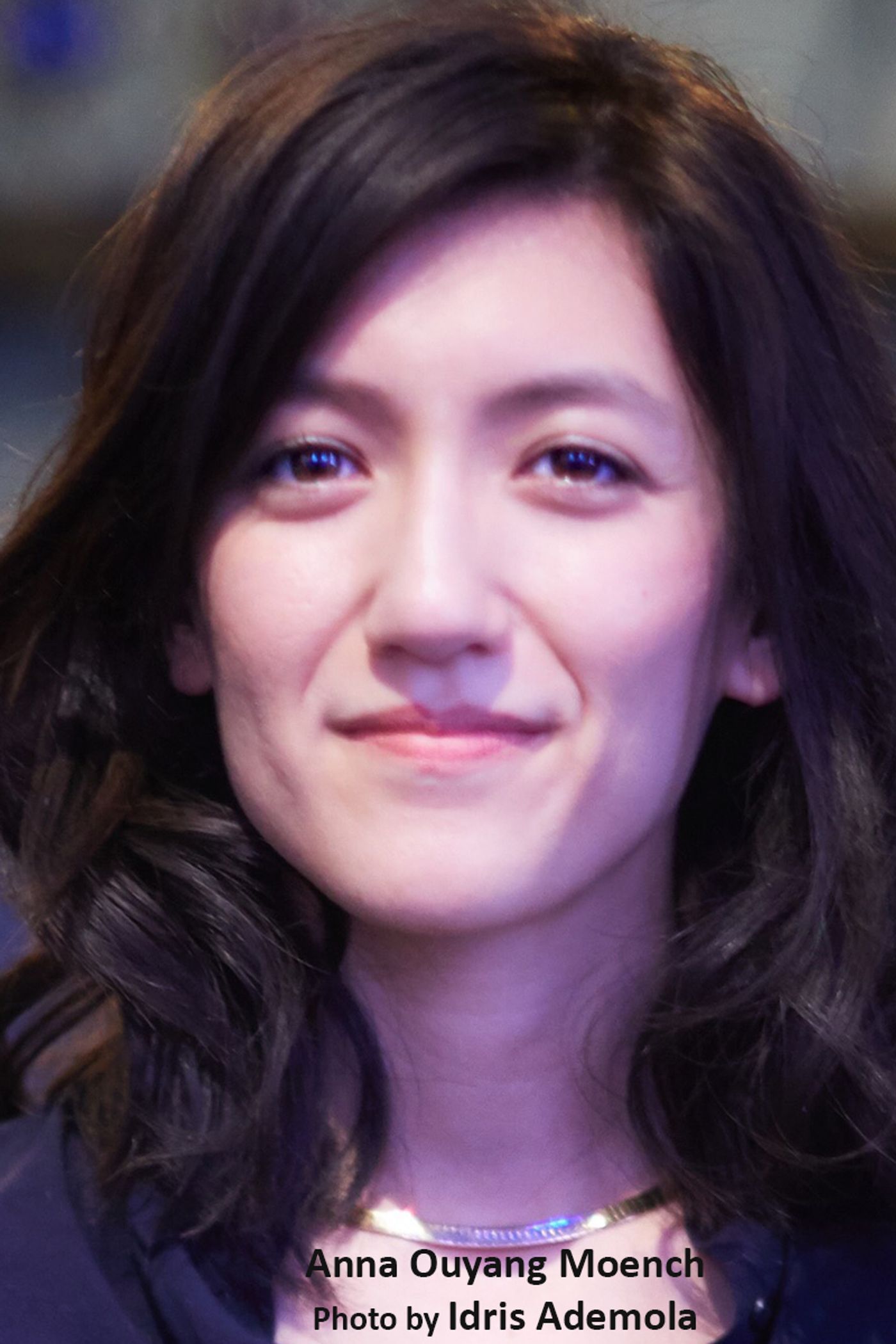
I originally interviewed Anna Ouyang Moench in February 2020 for her proposed March 12, 2020 opening of Man Of God. And then the pandemic happened. I got the chance to revisit with Anna on her rescheduled opening May 20, 2022 (with previews beginning May 10th). The original 2020 interview has been updated. Maggie Burrows directs the 2022 cast of Shirley Chen, Emma Galbraith, Erin Rae Li, Albert Park and Ji-young Yoo.
How does it feel to finally get your opening night at the Geffen after two years of craziness?
I've always heard it said that theater is ephemeral. But this experience has made me think that it might be more accurate to say that theater is an organism. This production is the next generation of the production that closed in 2020. It's similar, there is shared DNA, but it is its own thing. I've made a few changes to the script, we have some new faces in the cast, and the director and design team are exploring new ideas. I still miss the incredible production we shared with preview audiences in 2020, I'm so proud of our collective work on it. I'm also really excited to create a new production in 2022.
Thank you for taking the time for this interview, Anna!
I got to see your world premiere of Man Of God at East West Players early 2019. It was powerful and amazing! Since then, it's also been produced by InterAct Theatre Company in Center City, Pennsylvania last month. Has there been any tweaks to your script between the world premiere, the InterAct production and what we will be seeing at the Geffen?
Thank you so much for coming to the East West Players production! Sadly, I wasn't able to be a part of the InterAct production due to the distance and my work obligations, so the script didn't change for that production. But since I live in L.A., I'm really thrilled to be able to drop in on rehearsals at the Geffen. I've been making a few tweaks to the script as a result of the work we're doing in rehearsal, but ultimately feel the play is finished.
Did you get the audience response you were hoping for in Man Of God's various pivotal scenes at East West?
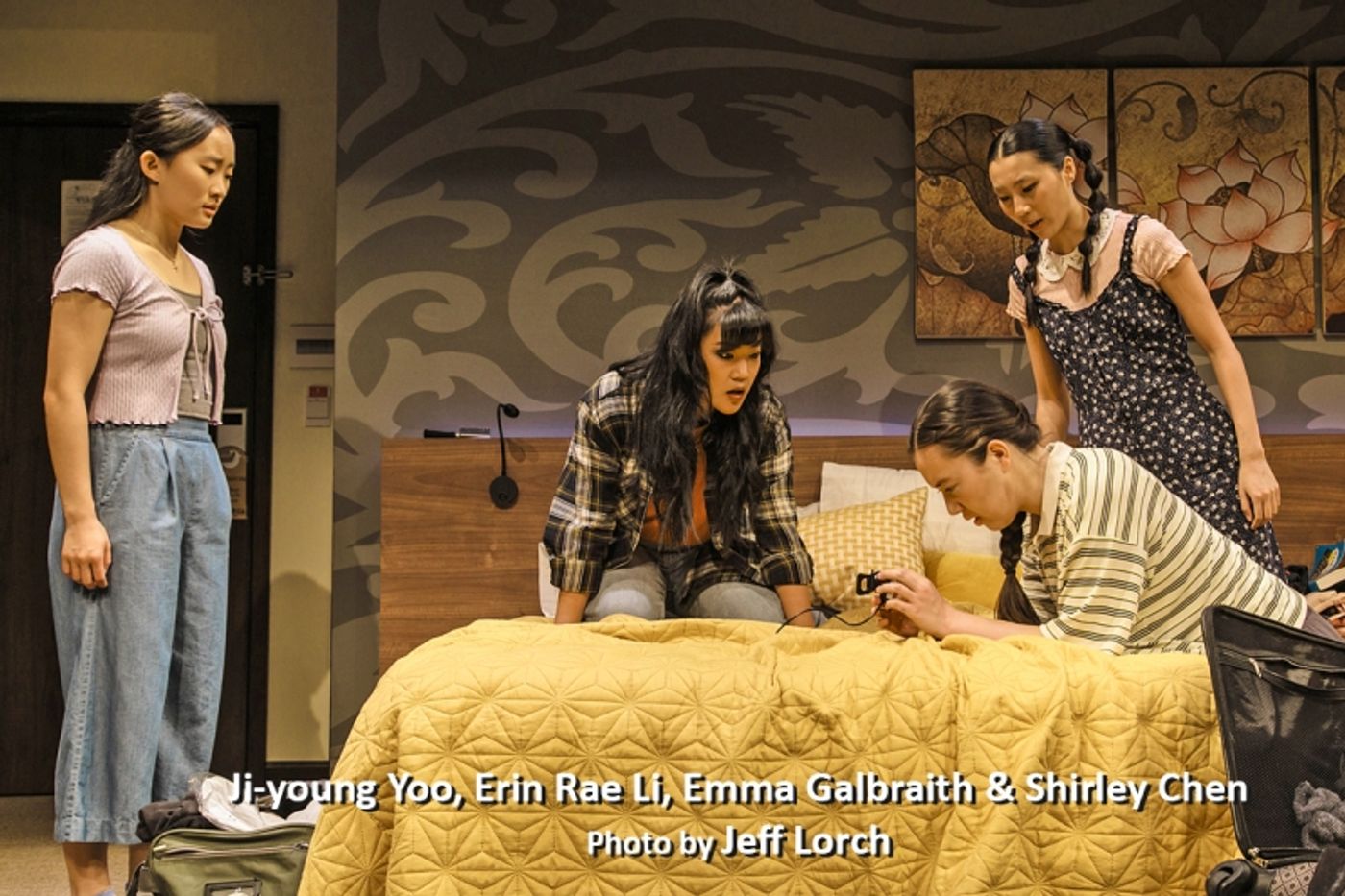 Absolutely. I wrote the play in part to examine my own desire for and participation in the concept of the "revenge fantasy" narrative that our culture is so fond of, and the way that narrative can fail survivors of sexual abuse who are unable to enact those fantasies in reality. Many survivors of abuse are children/minors who have very little experience in the world beyond the stories they absorb in movies, television, or books. If that's the only example of the "right" way to deal with abuse they know, these stories can actually lead survivors to feel like they've failed when they are not able to stand up to an abuser, fight back like a Navy SEAL, or navigate the complicated legal system to attain justice. Personally, I love a good revenge narrative! It's delicious to see a powerful villain brought to their knees by a righteous and wronged heroine, and those scenes in the play really well with audiences. Then, of course, there's the real confrontation at the end of the play, in which resistance, standing up for oneself, and growth are very small, incremental acts when they happen at all. In the context of the characters involved and the reality of the power dynamic in the room, these small acts carry so much more weight than the arias of violence of the fantasies.
Absolutely. I wrote the play in part to examine my own desire for and participation in the concept of the "revenge fantasy" narrative that our culture is so fond of, and the way that narrative can fail survivors of sexual abuse who are unable to enact those fantasies in reality. Many survivors of abuse are children/minors who have very little experience in the world beyond the stories they absorb in movies, television, or books. If that's the only example of the "right" way to deal with abuse they know, these stories can actually lead survivors to feel like they've failed when they are not able to stand up to an abuser, fight back like a Navy SEAL, or navigate the complicated legal system to attain justice. Personally, I love a good revenge narrative! It's delicious to see a powerful villain brought to their knees by a righteous and wronged heroine, and those scenes in the play really well with audiences. Then, of course, there's the real confrontation at the end of the play, in which resistance, standing up for oneself, and growth are very small, incremental acts when they happen at all. In the context of the characters involved and the reality of the power dynamic in the room, these small acts carry so much more weight than the arias of violence of the fantasies.
Are the characters of the four Korean teenagers (Samantha, Kyung-Hwa, Jen and Mimi) based on your friends or family members?
Not specifically, no. To some extent, all my characters are informed by the people I've encountered and the communities I've been a part of; but I write my best work when I allow the characters to be fully themselves, revealing who they are as I place them in difficult situations. This play was a great example of that. The first thing I came up with was the character descriptions, which is just a list of the characters and the reason why each kid came on this mission trip. No backstory, no physical descriptions, just the motivation for bringing their parents the permission slip and asking them to sign. Once I had that, I knew exactly who these characters were, and they presented their points of view so clearly as I wrote the play.
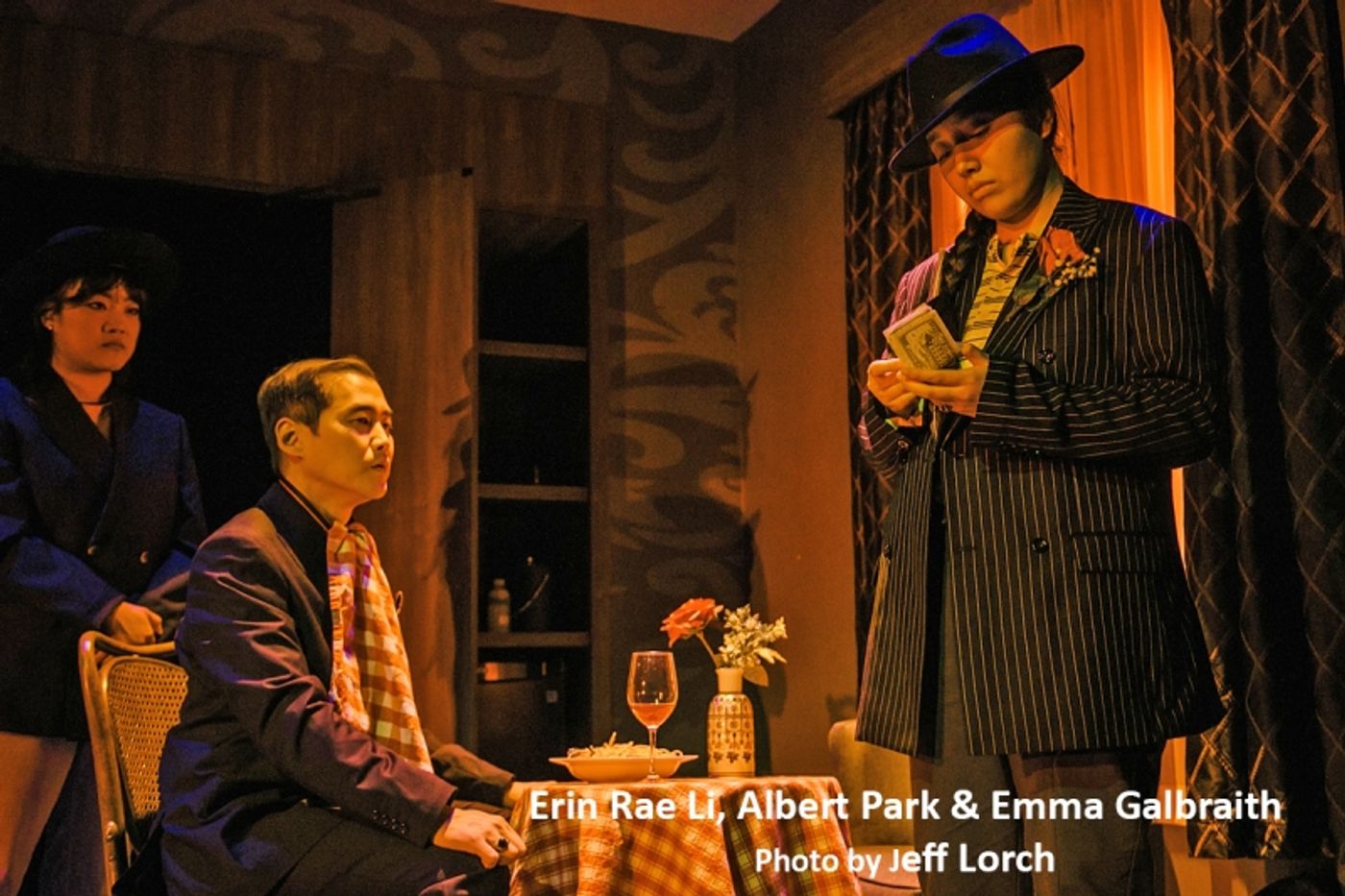 One of the persistent racist tropes about Asian Americans is that we are a monolith - indistinguishable, lacking individuality, conformist. The kids in Man of God share many similarities as members of the same youth group, but they couldn't be more different. As they wrestle with what to do in the wake of the discovery of the camera, these differences really brought the characters to life for me.
One of the persistent racist tropes about Asian Americans is that we are a monolith - indistinguishable, lacking individuality, conformist. The kids in Man of God share many similarities as members of the same youth group, but they couldn't be more different. As they wrestle with what to do in the wake of the discovery of the camera, these differences really brought the characters to life for me.
What sparked you to write about this not-often talked-about subject of sexual misconduct?
Thanks to the #MeToo movement, the subject of sexual misconduct is talked about a lot these days. That said, I wrote Man Of God about seven months before the news of the Weinstein scandal broke. Total coincidence. I'd been thinking about the subject a lot, because, you know. I'm a woman living in a patriarchy, so of course I'm pissed off all the time. At the time, the subject of sexual misconduct was not a secret among women. Maybe we thought that to talk about it would be to state the obvious. Like, "Hey everyone, do you realize that we breathe air all day and all night, from the moment we're born until the moment we die?? Isn't that crazy??" #MeToo could easily have been called #NoShitSherlock. But so many men in my social circle were openly shocked by the prevalence of sexual misconduct that women were now discussing openly. Clearly, this needed to be said. I have already seen positive changes as a result, and I hope that continues.
Would you say you have a common theme in your library of plays?
My plays are really varied in terms of style, genre, and theme. What unites them is my perspective. The world and the people in it are so fascinating, complicated, and absurd. Sometimes it's maddening, sometimes it's delightful; but it's always so beautifully human, it hurts. The effortless hypocrisy of humanity, myself included, is a common source of material when I write. The dark comedy that comes out of that hypocrisy is pure gold. And I really love that moment when something that was funny in a messed-up way for so long suddenly isn't funny at all anymore.
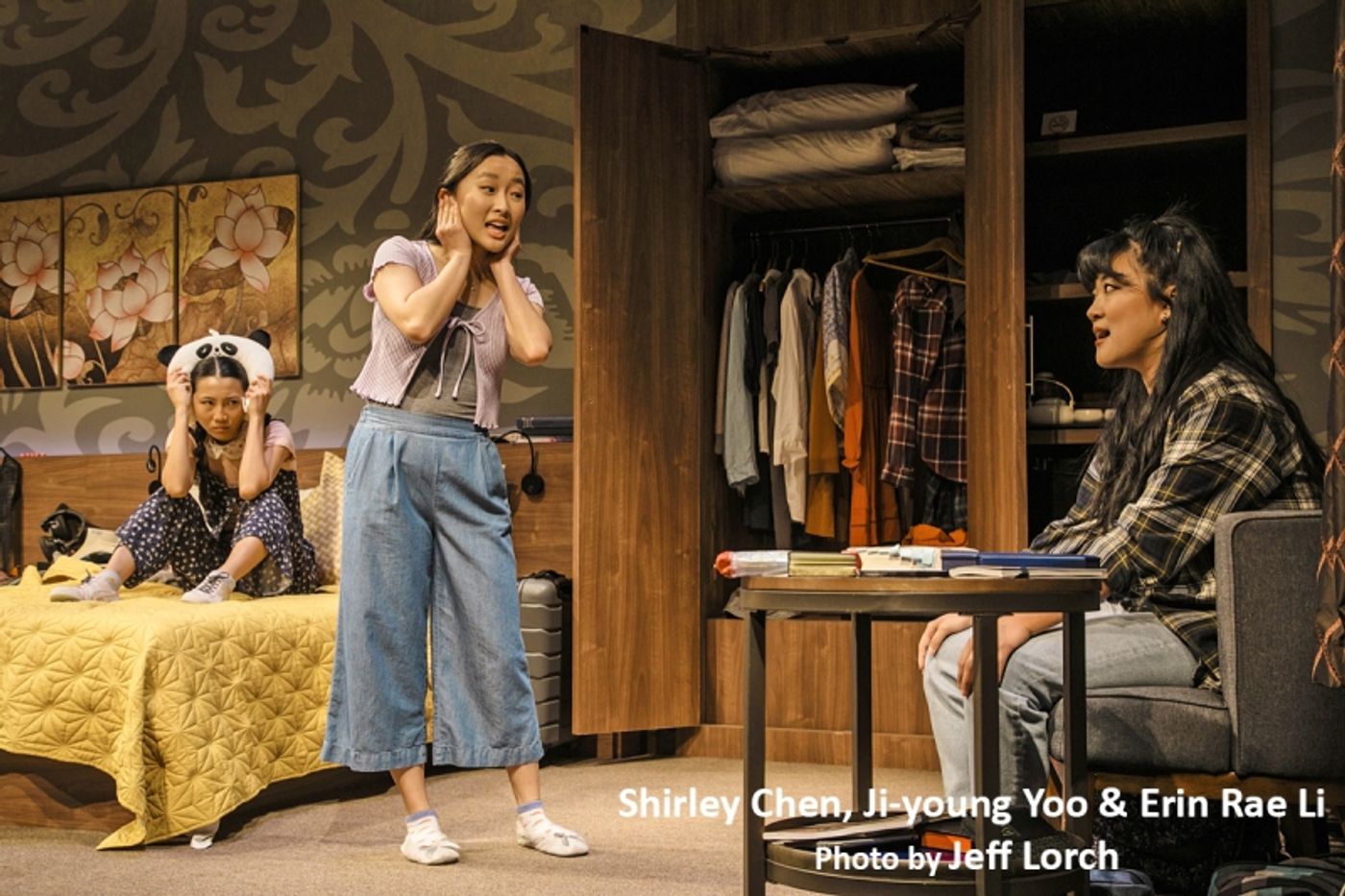 What criteria comes into play for you to decide to be more hands-on in the pre-production of your work? Premiere? Venue?
What criteria comes into play for you to decide to be more hands-on in the pre-production of your work? Premiere? Venue?
Normally I want to be involved in any world premiere, and love to continue to be involved in productions when possible for me and when it's right for the other artists. But right now, the deciding factor is location. I'm a parent and the primary breadwinner for my family. I'm about to have my second kid in less than a month. I have a world premiere of my play Sin Eaters going up at Local Theatre in Boulder, but I can't be hands-on at all, because it requires an out-of-town trip and I need to focus on other work before I give birth (being a freelance writer means there's no such thing as paid maternity leave). I'm really happy that I'm able to participate in the process at the Geffen by virtue of it being in my own city.
With your long list of commissions from various theatre organizations, how do you juggle your writing commitments?
I am still figuring out how to juggle different projects. It's hard, and I think everyone has to find what works for them. I try to focus on one project per day, but sometimes I need to figure out a way to split the day between two, out of necessity. I try to work on one in the morning, then take a break, eat lunch, go for a walk, then dive into another one in the afternoon. On my best worst days, when I'm struggling to make progress on the most urgent project, I try to use the other projects as a way to continue being productive on something. On my worst, worst days I stare into the void, contemplate the expanse of my failure, then give it another shot the next day. There's always tomorrow. Until there isn't. But at that point, I won't care about deadlines anymore. Too dark?
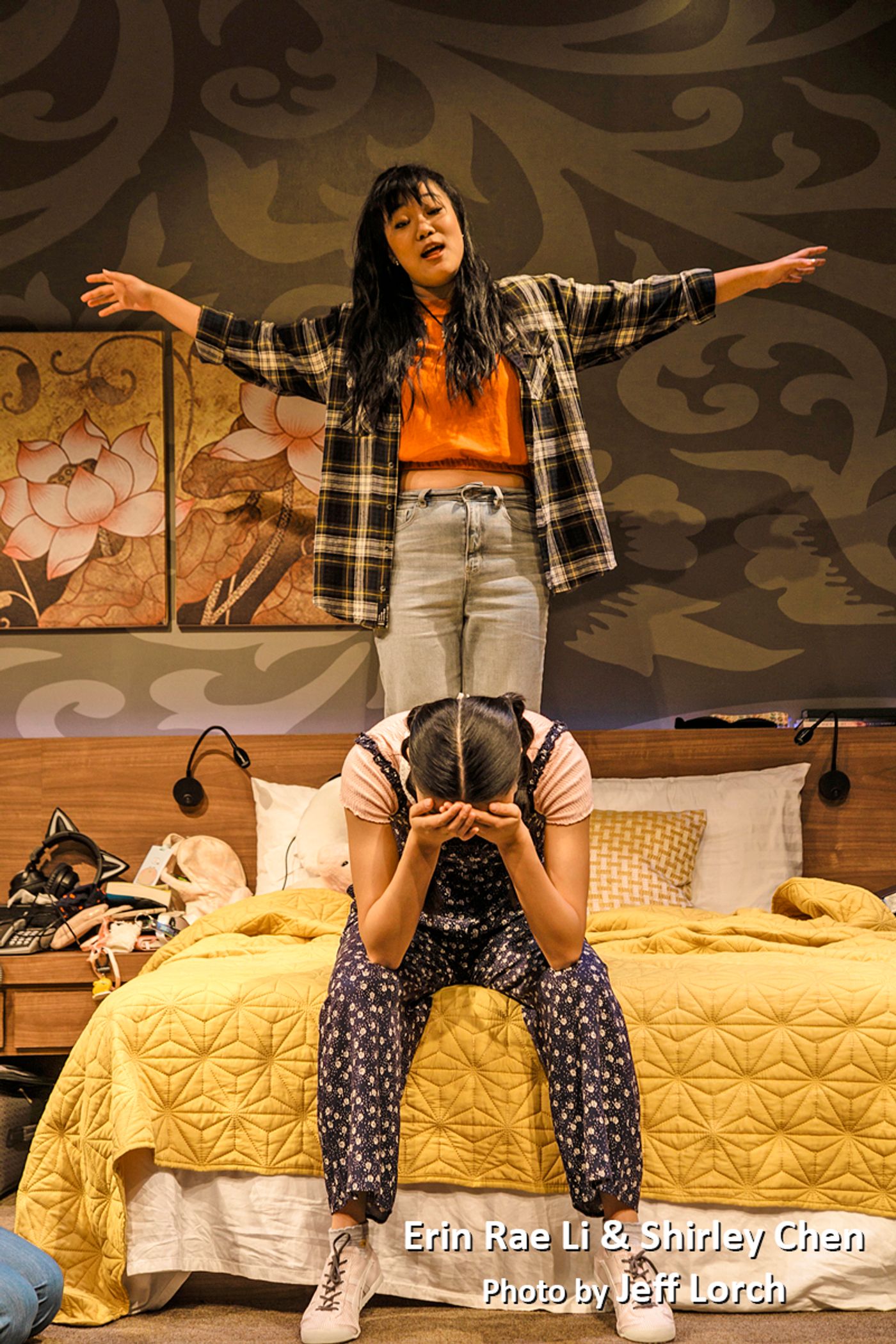 Do you schedule time specifically to write x number of pages every day? Or do you write whenever inspiration hits you?
Do you schedule time specifically to write x number of pages every day? Or do you write whenever inspiration hits you?
Page targets really don't work for me. I can tell when I'm not dialed in, and usually the problem is in the set up. The situation or characters I've constructed are flawed in some way that makes dialogue chit chat, rather than substantial progress through a scene. It's better to go back and change something in the set up to make things move forward. It can feel more like engineering than writing on some days. But when the setup has the right geometry, the writing flows. That said, I do write every weekday (I take weekends off to be with my family unless I'm seriously under deadline). But my definition of "writing" includes thinking, reading, and planning; and sometimes it even includes things like doing laundry or going to the post office. Some part of your brain is working on the problem. You might as well get the laundry done while your brain does its thing.
What differences are you finding in writing for TV, as opposed to for theatre? Any? Or not at all?
I've only been on a television writing staff once and have a couple pilots in development, so I'm still learning a lot with each project. That said, the core skills that playwrights have absolutely apply to writing for television and screen. The arc of a scene within the arc of an act within the arc of a play is the same concept as creating acts within episodes within seasons within a television show. Strong, distinctive dialogue that drives a story forward is the same regardless of medium. Great characters are great no matter what.
The differences are more on the business and development side. Television writing is collaborative from an earlier point in the process than in playwriting, in my experience. You're bringing partners on early, often when the idea is just an idea. Or if you're on a staff, your job is to realize the vision of another writer, so the writing is entirely collaborative. In playwriting, the writer usually writes a whole draft on their own, and then they get notes that they can either take or leave during the development and production process. I'm very happy that I get to do both, the variety works for me.
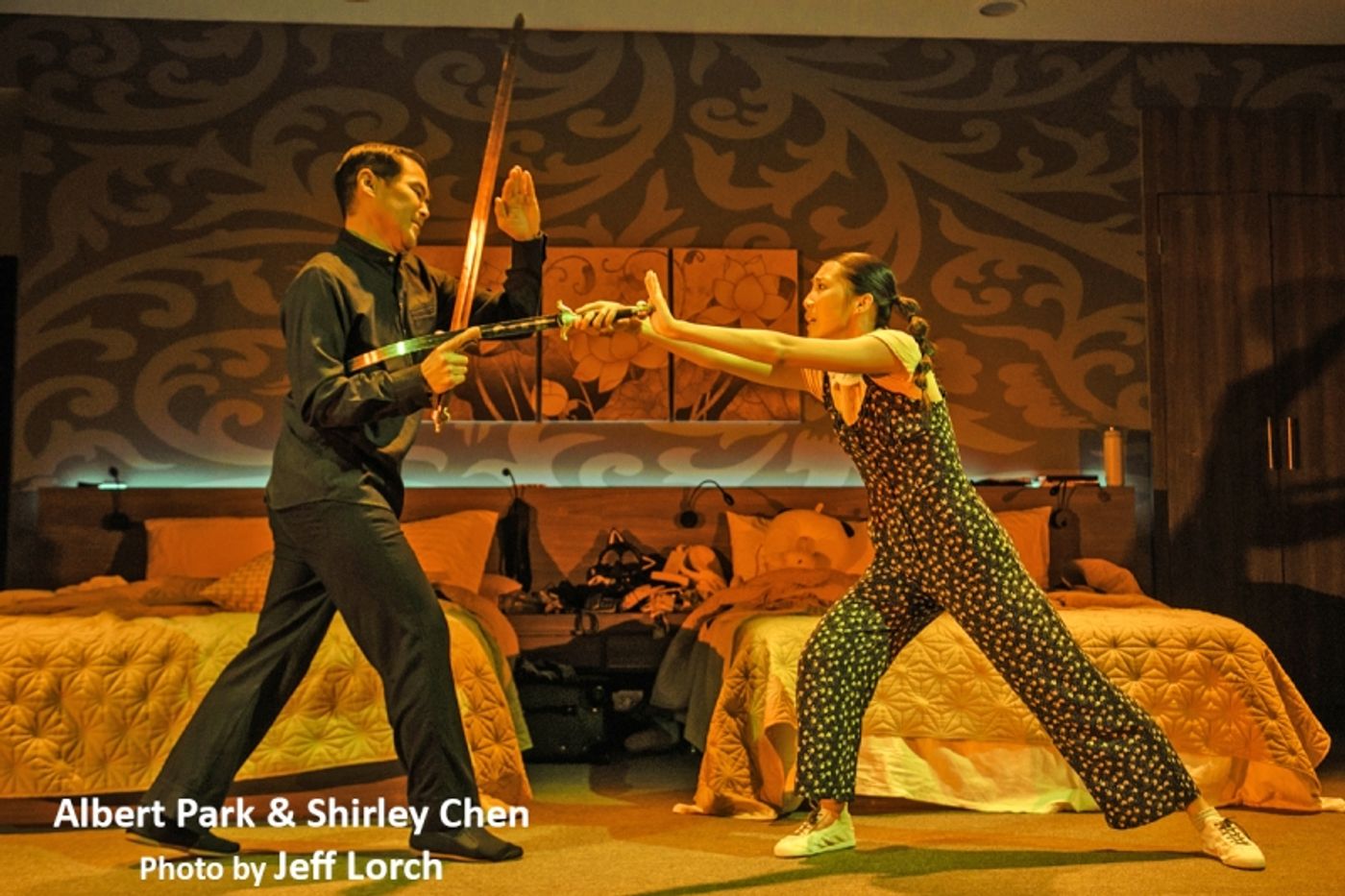 Would you describe your sense of accomplishment riding a bike cross-country?
Would you describe your sense of accomplishment riding a bike cross-country?
I'd done a lot of bike travel before my coast-to-coast trip, but there is something special about going across the whole country! A friend and I flew to Seattle and rode our bikes back to New York (where I was living at the time). It was a surreal feeling to roll up to my apartment, knowing the last time I was there, I was wrestling my boxed bike into a cab headed to JFK. I love traveling by bicycle. You meet the most wonderful people, experience the beauty of the landscape in a tactile way, and are reminded of your own resilience over and over. I recommend it to everyone.
What would be the most satisfying response to you from the Geffen audience after Man Of God's curtain call?
This is a play that asks people to examine the disparity between our fantasies and our reality, and that can be an uncomfortable thing. I hope that audiences experience the discomfort and the emotions that come with it and continue to reflect on that experience when navigating a world that is populated by survivors and perpetrators of abuse. Even I have found myself placing my current, adult self into other people's past experiences, imagining from the safety of a mental exercise what I would have done or said in situations where they did not feel safe to stand up against abuse at the time. This is not helpful or reasonable. This is not empathy. I want our culture to be able to acknowledge the injustice of abuse and say to survivors: You made it through, and that's enough. Victory doesn't have to look like a girl with a gun.
What can we expect from Anna Ouyang Moench next?
My new play is called Your Local Theater Presents" A Christmas Carol, By Charles Dickens, Again. It's set in the green room of a regional theater, and each scene takes place just before curtain on a different closing night, Christmas Eve performance of A Christmas Carol. We follow Eddie, a young actor fresh out of grad school, as he ages through the male roles of the play over the many years of his career.
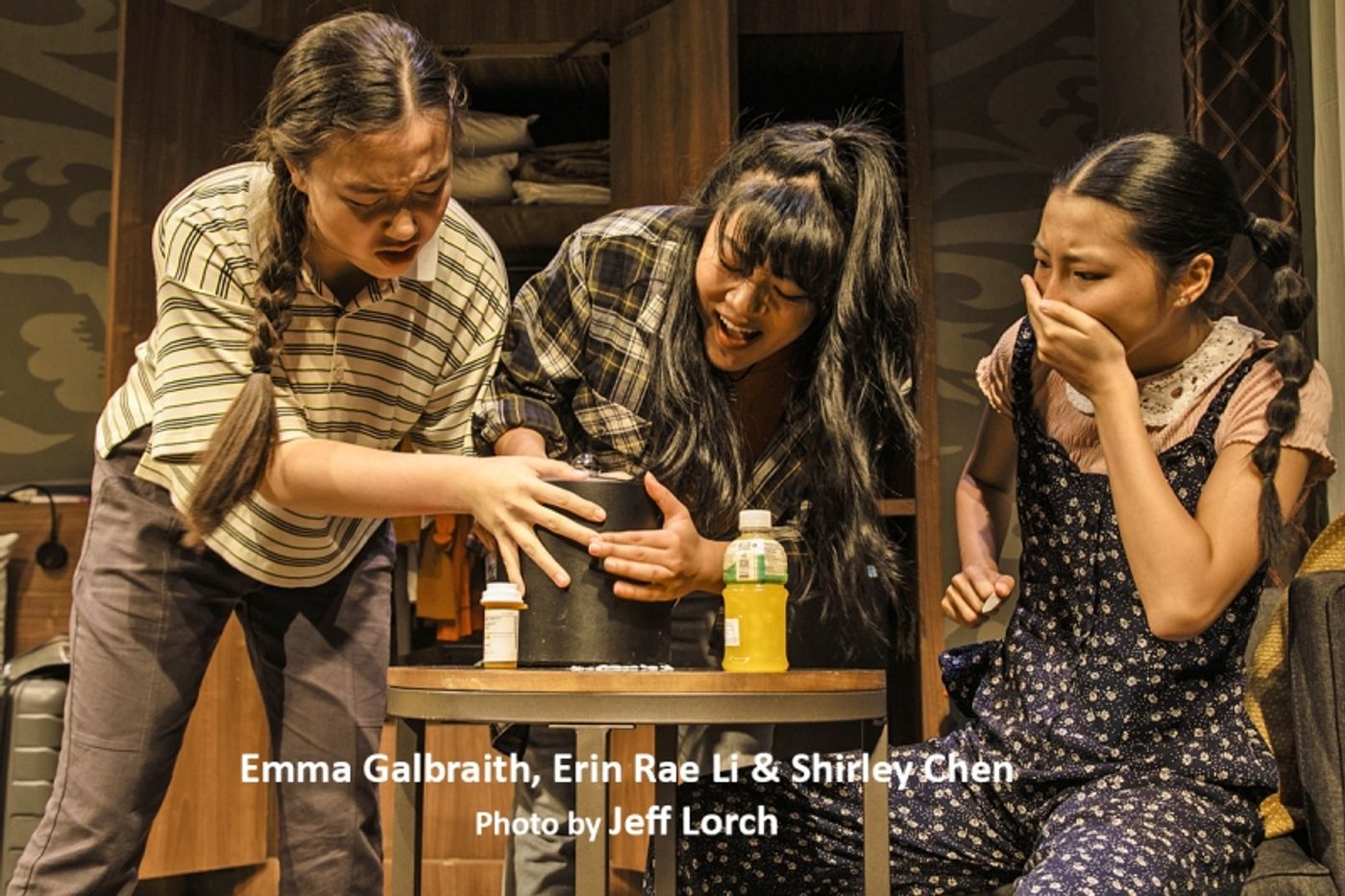 This play was conceived during the pandemic, and it turned out to be a love letter to theater and the people who make it. After so many years of my life spent immersed in the theater world (and occasionally getting irritated by how difficult it can be to make a life in that world), having a total shutdown of the industry made me reflect on the big picture. Why do we do this? Why do we give up so much, put off so many milestones in our lives, all to chase...what, exactly? A role in A Christmas Carol? Again? The reasons vary from sad to sublime. When I had the idea, I worried it was too inside baseball. Would anyone who isn't a theater person get it or care? But as I wrote it, I came to realize that it's really about our relationship to work itself, about how one's labor intersects with one's soul, self-identity, and personhood. Sometimes in beautiful ways. Sometimes not.
This play was conceived during the pandemic, and it turned out to be a love letter to theater and the people who make it. After so many years of my life spent immersed in the theater world (and occasionally getting irritated by how difficult it can be to make a life in that world), having a total shutdown of the industry made me reflect on the big picture. Why do we do this? Why do we give up so much, put off so many milestones in our lives, all to chase...what, exactly? A role in A Christmas Carol? Again? The reasons vary from sad to sublime. When I had the idea, I worried it was too inside baseball. Would anyone who isn't a theater person get it or care? But as I wrote it, I came to realize that it's really about our relationship to work itself, about how one's labor intersects with one's soul, self-identity, and personhood. Sometimes in beautiful ways. Sometimes not.
Thank you again, Anna! I look forward to finally experiencing your Man Of God a second time.
For ticket for the live performances of Man Of God through June 19, 2022; log onto www.geffenplayhouse.org
Videos

